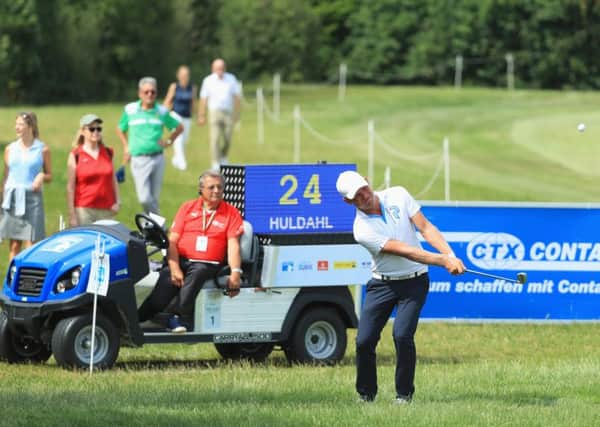Martin Dempster: There should be no hiding place for golf's slow coaches


GolfSixes, Super 6 and different versions of knockout events, both match-play and stroke-play, have all helped freshen up the game, but this one really caught the attention due to the fact it showed that professional golf doesn’t need to be slow and, as a consequence, boring.
Issued pretty swiftly by Pelley’s communications chief – and why not? – the key statistics from the inaugural event at Diamond Country Club in Austria showed that putting players on the clock for every shot had the desired effect and not necessarily at the expense of the quality of the golf.
Advertisement
Hide AdAdvertisement
Hide AdIn the first three rounds in three-balls, the average time for 18 holes was four hours and 15 minutes, which was 15 minutes ahead of schedule, 33 minutes less than the average time on the circuit in 2018 and 25 minutes better than average at the same venue last year without a shot clock in operation. For the final round in two balls, the average time was three hours and 26 minutes, which was 31 minutes less than this season’s average. The fastest round for three-balls was three hours and 47 minutes, the quickest for two-balls was three hours and 12 minutes, while 11 rounds were recorded in less than four hours in the first three circuits. Add in the scoring average for the event being 72.24, 1.13 less than at Diamond Country Club from 2010-17, and it was a winner all round for Pelley and the European Tour.
“It’s a mindset thing as much as anything,” the Tour’s chief executive told Global Golf Post in Austria. “Whether they have 40 seconds or 50 seconds, they are approaching things differently – and that’s just what we want to see. The hope is the mindset will change, not just for them but amateurs.”
Four penalties were handed out, the offenders being Clements Rader, Grant Forrest, Markus Brier and Oscar Stark. Forrest, for one, definitely isn’t a regular offender but, nonetheless, it will have stung for him to have been one of those named and shamed.
The majority of the regular slow-play culprits probably sat out this event because they’d have hated playing the game at a proper pace, but there will be no hiding place for them if this is the start of something that really does make a difference.